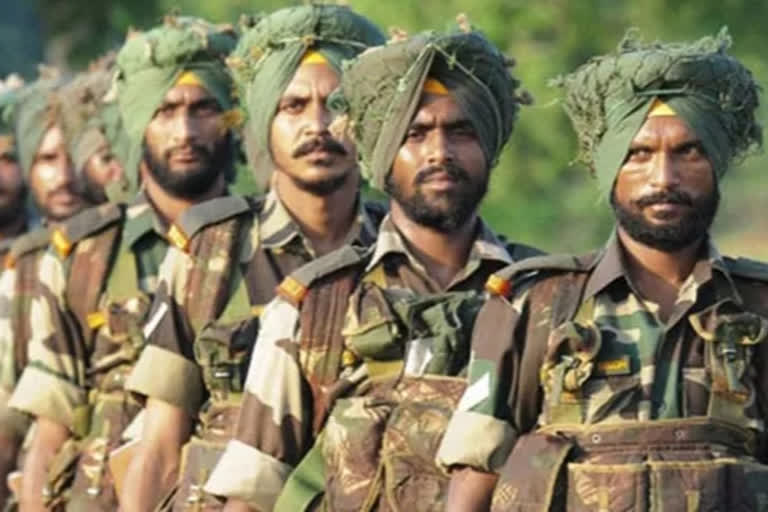Chandigarh: The geographic location of Punjab is what gives it an added importance. Lying just below the Jammu region, it guards the 600-km plains sector of our international border with Pakistan. Amritsar is both the heart and soul of the state of the brave, good hearted and rustic Punjabis who are ever ready for a bit of adventure and enterprise. But, of late, Punjab is hurtling down the dark abyss of drugs and substance abuse. Being located on the Pakistan border, the drug smuggling rackets thrive here and the young valorous Punjabi known for his love for farming and soldiering is battling the demons of drug addiction.
The country and the state of Punjab are presently engaged in fighting a war on drugs in Punjab. ‘Drugs' and 'drones' are one of the many nefarious means being aggressively used by our inimical western adversary to destabilise this golden land. India draws tremendous strength from the state of Punjab. Major rivers like Ravi, Satluj and Beas, their tributaries and effective canal network give Punjab an inherent strength to tide over any agrarian and weather related crisis. This bounty of nature and irrigation planning is complemented by the enterprising nature of the Punjabis which has brought prosperity and glory to this land.
A strong Punjab is the western anvil of our nation and this is precisely what our western neighbour is trying to break by proxy. The earlier efforts by foreign based fundamentalist outfits to destabilise Punjab was by exploiting the religious sentiments and fuelling a mistaken belief that a separate state of Khalistan could be carved out.
It needed an excruciating decade from 1980 to 1990 to wean the youth away from such a radical misadventure. Although the state is still nursing the psychological wounds caused to remove the cancerous growth of religious fundamentalism, Pakistan is trying hard to prop up misguided elements and reignite the dying embers of separatist thoughts.
Pakistan gives a very high priority to destabilise Indian Punjab. This is because Punjab provides inherent strength to India as a strong border state that boasts of loyal populace, strong economy and abundant water. It is therefore a leadership challenge at national level to keep Punjab away from drugs and terrorism.
The heroism of the Sikhs is folklore. The leadership qualities of Guru Govind Singh, Maharana Ranjit Singh, Guru Teg Bahadur and scores of such great Sikh warriors are legendary, emulatory and rare. Punjab ranks amongst the highest in the gallantry awards won by military personnel hailing from this state. It has an Army Regiment named after it i.e. the Punjab Regiment along with the Sikh Regiment and the Sikh Light Infantry Regiment. This, along with its all-round track record makes Punjab a frontline state of India.
So why is Punjab a leadership challenge at the national level? Well, it is so because it has a 600-km border with Pakistan, the proxy war launched by Pakistan and the widespread drug menace. This juxtaposed with the gullible Punjabi youth with high adrenaline, more propensity to take risk and the human lure for easy money has been assiduously cultivated by Pakistan resulting in a huge security challenge for Punjab and India. This challenge, unless combated by positive cultural and disciplinarian forces, is sure to have catastrophic results for the stability of Punjab.
It, therefore, becomes mandatory for our central and state leadership to lead the way by persuasive, educational and reformative measures to keep the youth in good spiritual, mental and emotional health. Petty politics has to make way for unselfish measures to strengthen the state's fabric and the nation’s security.
(*The author is a former Colonel of Mahar Regiment and currently Chair Professor Savitribai Phule University, Pune.)



